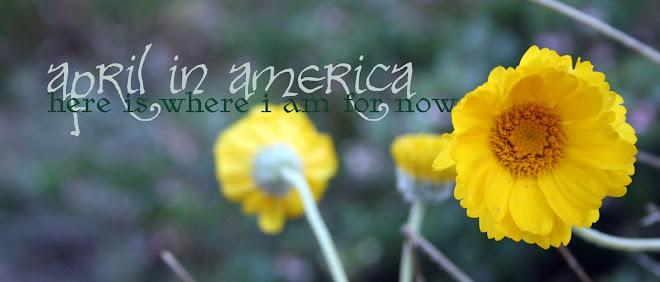Between taking classes and teaching classes, i drive nearly 300 miles a week. I hate that about my lifestyle, especially at $3.53/gallon, but it can't be helped for the moment and i make recompense by walking to church, the library, the grocery store, and the post office.
Driving that many miles and hours without a cd player or functioning tape deck in my car, the radio is on a lot. Usually it's tuned to stations with few commercials: public radio, e.g. but even that has blurbs and sponsors and senseless adverts.
If i hear one more blurb from Flex Your Power (and i'm so miffed, i won't deign to hyperlink) about how much energy we'd save if Californians replaced all their inefficient washing machines, dish washers, dryers, and water heaters, i'll scream. Better yet, i'll write my favorite radio stations and Flex Your Power, although i doubt it will accomplish much. IT WILL NOT SAVE THE WORLD to chance your water heater. Sure, it'll save some energy. It will not, however, address the energy used to make the new whatever, the energy to ship the new whatever to the store and then transport it to your house, or the energy to haul away your old whatever. Worst of all, where on earth do they propose to put 16 million old water heaters, dryers, washing machines, and dish washers? Throw the thing out when its useful life is completed, wrap insulation around it, only run full loads--there are better ways to save water and energy. We don't have enough planet to dump old things just because there's a new and improved thing. Prime agricultural land in California has already been paved over. We shouldn't waste any more.
This lack of logic also goes into the marketing of hybrid cars. They do, in certain driving conditions, use less gas. That's no excuse to ship older models overseas or to Mexico, or to dumps or scrap lots. Then there's the whole issue of their toxic batteries.
We could have a grand standard of living--people did in the 1920's and 1950s and thought they were at the height of consumerism--while consuming much less, and that includes so-called eco-friendly stuff too. Just because it's called "green" by the manufacturer does not make it green, and using more than one needs is far from green.
Rant over.
Except, oh, did i mention hearing news about a California legislator's brilliant idea to raise oil taxes by 8%? As if gas, and everything transported by gas (= almost everything), hasn't increased in price enough? Close the loopholes about yachts already, and give us better public transit, and then i might re-elect someone who proposes an increased oil tax. Over my dead body if i'd vote for him before that.
Saturday, March 15, 2008
Subscribe to:
Post Comments (Atom)
birding life list (in process!)
- White-crowned Sparrow (Zonotrichia ?) in winter
- Western Wood-Pewee (Contopu sordidulus)
- Western Tanager (Piranga ludoviciana)
- Western Scrub Jay (Aphelocoma californica)
- Western Bluebird (Sialia mexicana)
- Tufted Titmouse (Baeolophus bicolor)
- Stellar's Jay (Cyanocitta stelleri)
- Sparkling Violetear (Colibri coruscans)
- Snowy Owl (Nyctea scandiaca)
- Snowy Egret (Egretta thula)
- Ruddy Duck (Oxyura jamaicensis)
- Red-winged Blackbird (Agelaius phoeniceus)
- Red-tailed Hawk (Buteo jamaicensis)
- Pied Crow (Corvus albus)
- Northern Mockingbird (Mimus polyglottos)
- Northern Cardinal (Cardinalis cardinalis)
- Mourning Dove (Zenaida macroura)
- Mallard (Anas platyrhynochos)
- male Superb Sunbird (Cinnyris superbus) i think
- Malachite Kingfisher (Alcedo cristata)
- Lesser Goldfinch, greenbacked (Carduelis psaltria)
- Lazuli Bunting (Passerina amoena)
- Indigo Bunting (Passerina cyanea)
- House Finch (Carpodacus mexicanus)
- Hooded Oriole (Icterus cucullatus nelsoni)
- Greater Roadrunner (Geococcyx califorianus)
- Great Horned Owl (Bubo virginianus)
- Great Blue Heron (Ardea herodias)
- Congo African Grey (Psittacus erithacus erithacus)
- Common Garden Bulbul (Pychonotus barbatus)
- Cinnamon Teal (Anas cyanoptera)
- Cattle Egret (Bubulcus ibis)
- Canada Goose (Branta canadensis)
- California Towhee, juvenile (Pipilo crissalis)
- California Thrasher (Toxostoma redivivum)
- Brown Pelican (Pelecanus occidentalis)
- Blue Jay (Cyanocitta cristata)
- Black-crowned Night-Heron (Nycticorax nycticorax)
- Black-capped Chickadee (Poecile atricapillus)
- Black Phoebe (Sayornis nigricans)
- Black Crowned Waxbill (Estralida nonnula)
- Bald Eagle (Haliaeetus leucocephalus)
- Anna's Hummingbird (Calypte anna)
- American Robin (Turdus migratorius)
- American Kestrel (Falco sparverius)
- American Goldfinch (Carduelis tristis)
- American Coot (Fulica americana)
- American Avocet (Recurvirostra americana)
- African Pygmy-Kingfisher (Ispidina picta)
- Acorn Woodpecker (Melanerpes formicivorus)


2 comments:
...and don't even get me started about that stupid law re: fluorescent lighting...
I know! I mean, i do like the light given off by CF's more, but legally mandating it? People complain about the poor light, but there are brighter CF's available. Does anyone talk about the mercury in them, though? Nope.
LED's--i'm waiting for LED technology. It's almost there and THOSE are cool lights. Literally. :)
Post a Comment